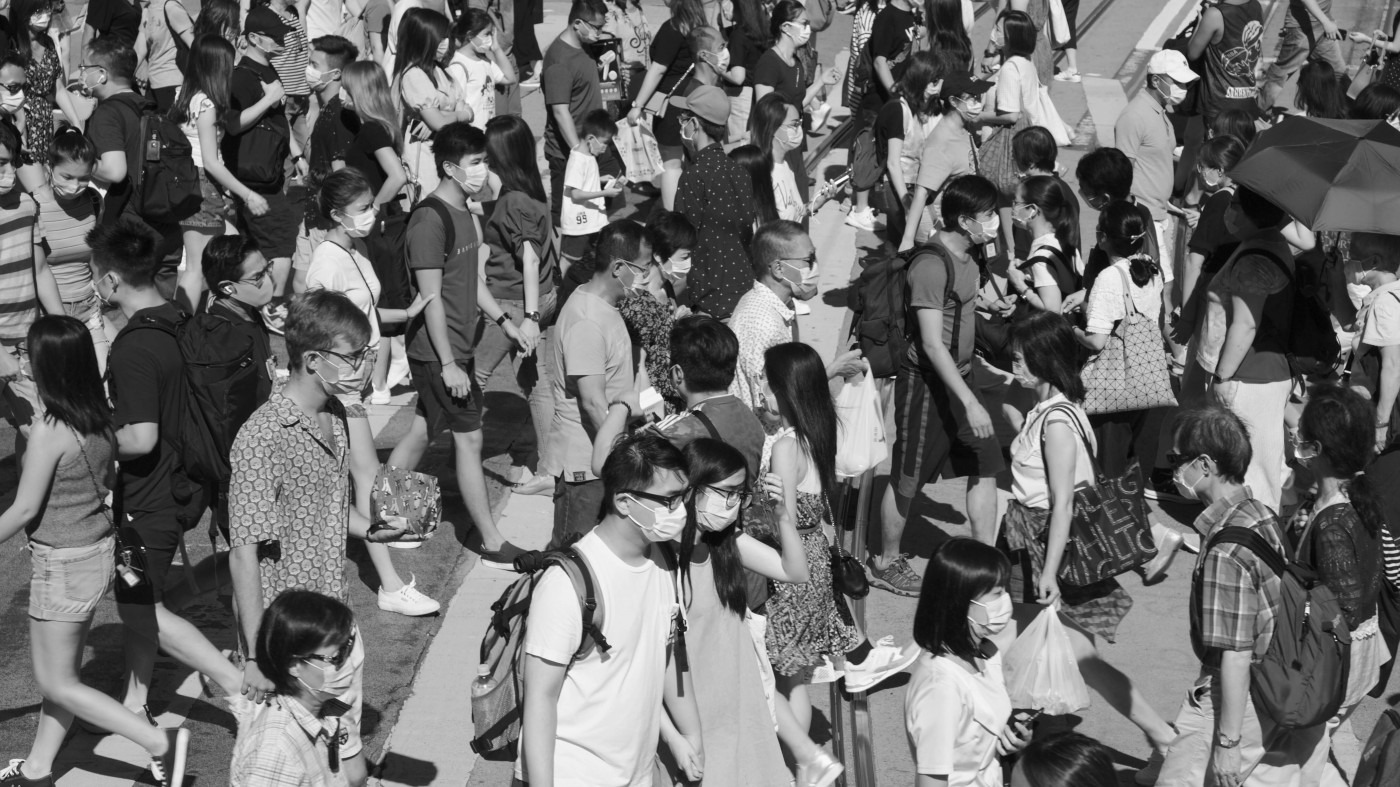Pandemics and the pursuit of equality
I first heard about Covid-19 whilst heading back home on a bus from an outing with friends. A push notification on the BBC News app noted that cases of a novel respiratory disease had cropped up in Wuhan. As something of a hypochondriac myself, I felt a slight pang of anxiety, but on the whole, I was unfazed – I quickly popped my phone back in my pocket and went about the rest of my day. Little did I know at the time how the pandemic would radically reshape the globe – leaving millions of deaths in its wake and plunging our lives into disarray.
Throughout the pandemic period, I lived in Hong Kong – a city which, for a while, was left comparatively unscathed by Covid. The city was a major hotspot for the SARS epidemic in 2002–2003, with the respiratory disease infecting nearly 1,800 Hongkongers and killing roughly 300. The experience left Hongkongers perpetually wary of respiratory illnesses, with actions such as wearing masks when ill becoming a commonplace habit – even for diseases as mild as the common cold. As such, Hong Kong was better prepared than many other cities to tackle Covid-19 when it arrived – with robust action by both the government and residents keeping case counts low initially. This was until a botched vaccine rollout led case counts to surge in 2022 as the Omicron variant swept through the city.
Hong Kong’s effective initial response to Covid-19 meant that, in some respects, we had it better than those in many other countries. Never did I experience a lockdown as those in the UK did, for example. However, the pandemic meant that, like many others, the bulk of my final two years at secondary school were online. The lack of in-person contact with my peers, something that I had previously taken for granted, undeniably made me more isolated and lonely, taking a sledgehammer to my physical and mental health.
That being said, the last thing I want is for this piece to be a laundry list of my complaints about my own experiences. As someone from an affluent background, I had the fortune of being able to live through the pandemic in a spacious home, with high-quality broadband and a computer device on which I could conduct online learning. The same couldn’t be said for many students from lower-income backgrounds – many of whom were caged in cramped ‘subdivided’ flats due to Hong Kong’s housing crisis and lacked access to decent Wi-Fi and devices to the point that they had to attend online classes using their mobile phones.
The pandemic also highlighted the extent to which many of Hong Kong’s residents are essentially relegated to second-class status, being subjected to perpetual exploitation and mistreatment
The pandemic also highlighted the extent to which many of Hong Kong’s residents are essentially relegated to second-class status, being subjected to perpetual exploitation and mistreatment. Many of the city’s more affluent households rely on foreign domestic helpers, workers from abroad who conduct domestic responsibilities such as cleaning work. Even prior to the pandemic, they faced unfair working conditions and wages – many experienced repeated abuse by employers, and the minimum wage for domestic helpers (HK$4,870 a month, or roughly £495) is even lower than the paltry one that other workers in Hong Kong receive. Unlike other Hong Kong residents, domestic helpers are unable to apply for permanent residency after having lived in the city for seven years, and they are legally obliged to live with their employers, which often results in them being subject to abjectly poor living conditions – many domestic helpers have reported having to sleep in kitchens, or even bathrooms.
This mistreatment was amplified during the pandemic. Reports abounded of domestic helpers being barred from leaving their employers’ houses on their days off, and many were left without shelter and medical insurance after being fired by employers simply for contracting Covid-19. They were also excluded from receiving ‘consumption vouchers’ – stimulus checks aimed at bolstering Hong Kong’s economy – further augmenting the precarity they had already been subject to prior to the pandemic.
Behind the façade of the rose-tinted ‘we’re all in this together’ rhetoric that marked much of the discourse surrounding Covid-19 globally, Hong Kong’s experience exemplifies the ground reality: a world brimming with inequality – disparities that the pandemic laid bare.
During 2024’s Warwick Economic Summit (WES2024), a global campaign was kickstarted with the goal of engaging the youth in sharing their experiences with the Covid-19 pandemic as well as to promote discussions about the WHO’s proposed pandemic accord. As WHO Director-General, Dr. Tedros Adhanom Ghebreyesus, noted during his address at WES2024, health disparities extend well beyond national boundaries, having dramatic implications on a global scale. Dramatic inequalities between countries in regard to healthcare access and pandemic preparedness will leave countless numbers of people dangerously exposed when the next ‘Disease X’ rolls around. Global efforts to move towards healthcare equality and facilitate cross-country information sharing, such as the WHO’s proposed pandemic accord, will play a crucial part in protecting billions of people across the world from future pandemics. It is a moral obligation on all our parts to promote these initiatives and work across countries to protect humanity from disease, because, as Dr. Ghebreyesus himself noted: “Pathogens have no regard for the lines humans draw on maps.”
Anyone interested in sharing their experiences can participate by using the hashtags #AreWeReady and #PandemicAccord when posting on social media.

Comments